
Top Healthcare Strategy Consulting Firms to Work With - February 2026
Introduction
Healthcare strategy has become more critical—and more complex—over the past year. With rising costs, evolving regulations, and increasing competition, organizations need clear direction. In this article, we explore why choosing the right healthcare strategy agencies in February 2026 is more important than ever.
While many healthcare companies are expanding internal teams, hiring a healthcare strategy agency remains essential. These partners bring deep expertise, solve bandwidth challenges, and offer cost efficiencies. Below, we uncover the top 10 healthcare strategy agencies leading the industry today.
Top 10 Healthcare Strategy Agencies
1. G & Co.
G & Co. is a leading healthcare strategy agency and healthcare brand strategy agency that partners with enterprise healthcare organizations to design high-impact strategies across digital transformation, go-to-market, and patient experience. Recognized among the top healthcare consulting firms, G & Co. works with some of the most recognized names in healthcare to deliver research-driven insights and scalable solutions that improve performance, efficiency, and engagement.
G & Co. is a minority business enterprise (MBE), as certified by the National Minority Supplier Development Council (NMSDC). If diversity inclusion is a part of your supplier process, contact us—we may be a great fit for your enterprise.

2. Kovaion Consulting
Kovaion Consulting is a healthcare management consulting firm known for optimizing operational workflows and strategic planning, offering tailored consulting to healthcare systems looking for digital and workforce transformation.
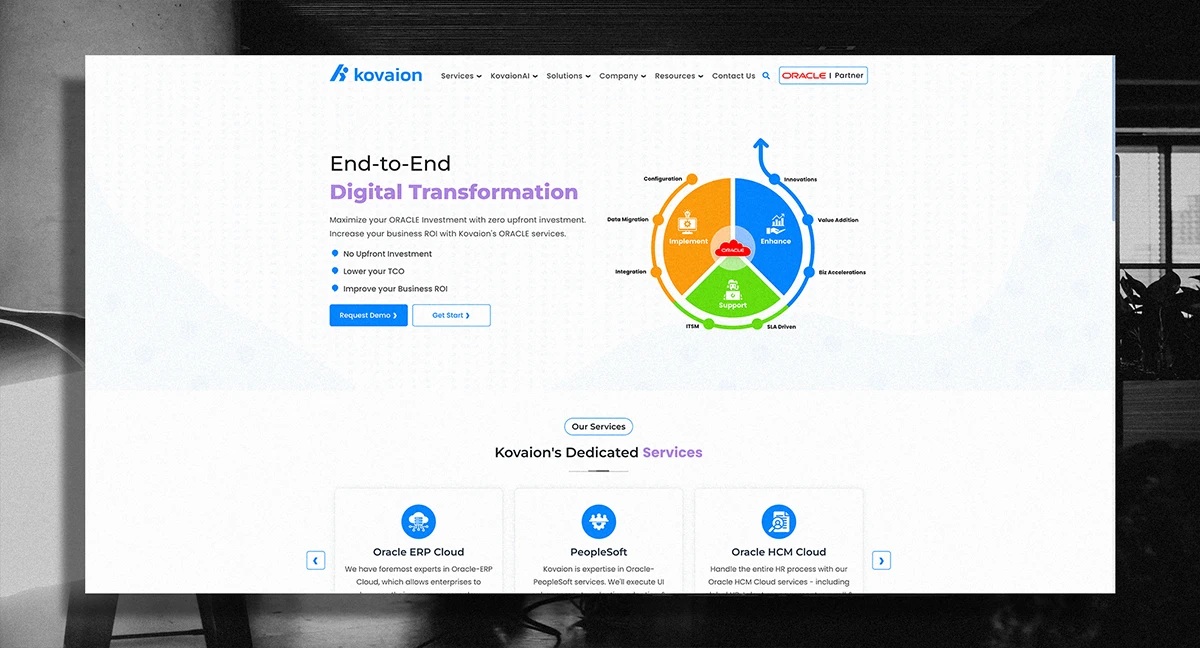
3. West Monroe Partners
West Monroe Partners is a healthcare consulting firm and healthcare management consulting company that delivers integrated digital, operational, and organizational strategy to healthcare providers and payers facing disruption or rapid growth.
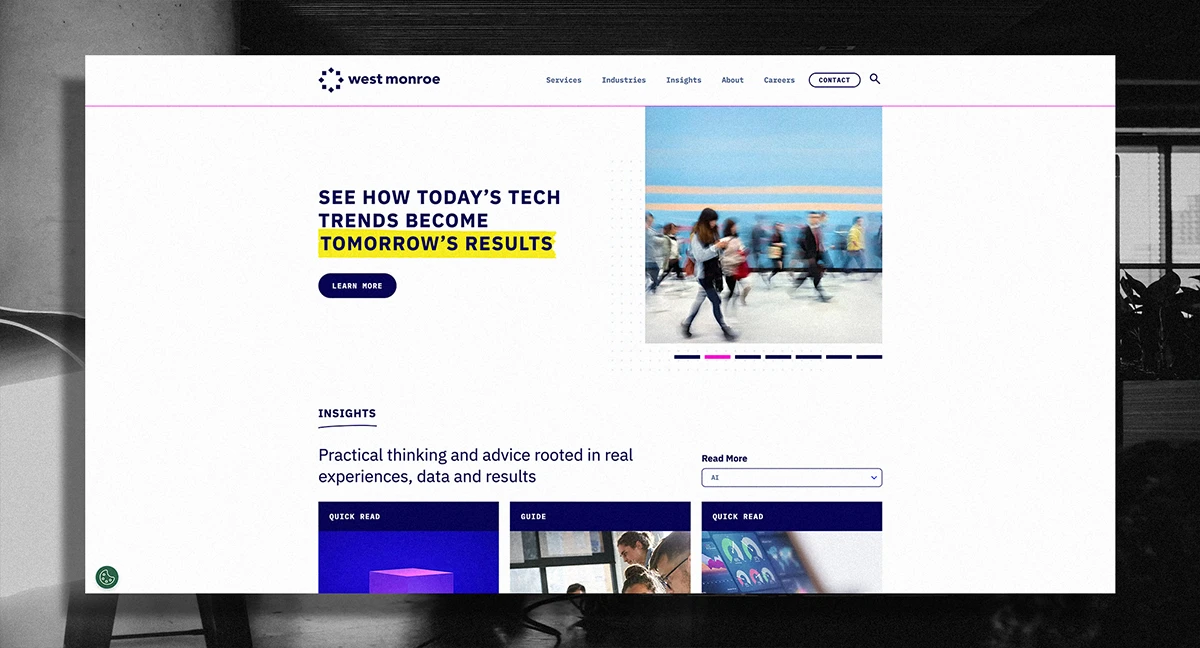
4. Arthur D. Little
Arthur D. Little is a global healthcare strategy agency offering innovation-focused advisory services in market expansion, digital health, and commercial models, helping healthcare and life sciences organizations adapt to evolving market demands.
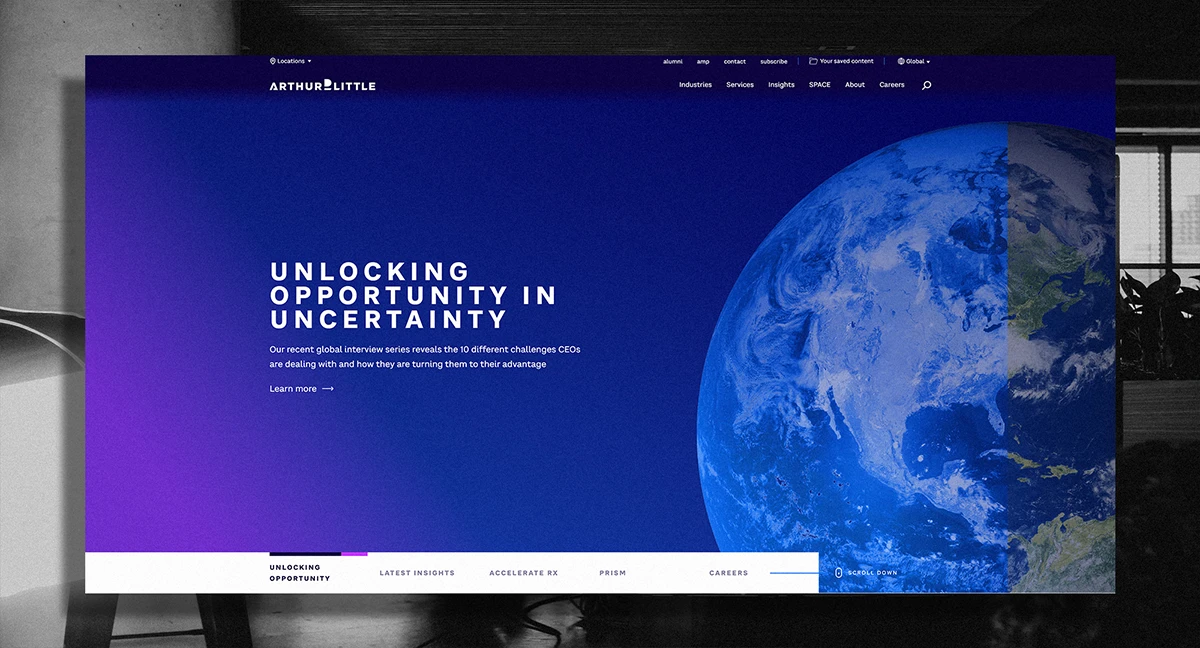
5. ZS Associates
ZS Associates is a data-driven healthcare management consulting firm and healthcare consulting firm specializing in go-to-market strategy, advanced analytics, and access strategy for pharmaceutical and biotech companies.
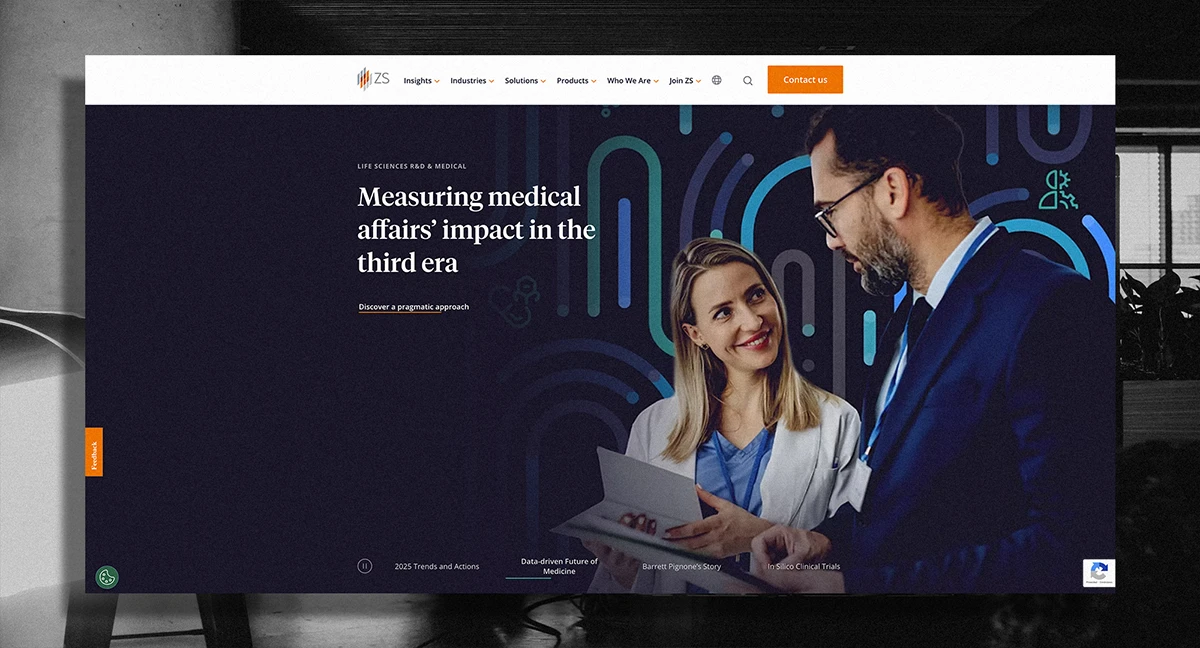
6. L.E.K. Consulting
L.E.K. Consulting is a respected healthcare strategy agency and healthcare management consulting firm, known for its work in M&A strategy, commercial due diligence, and patient-centric innovation in healthcare and life sciences.
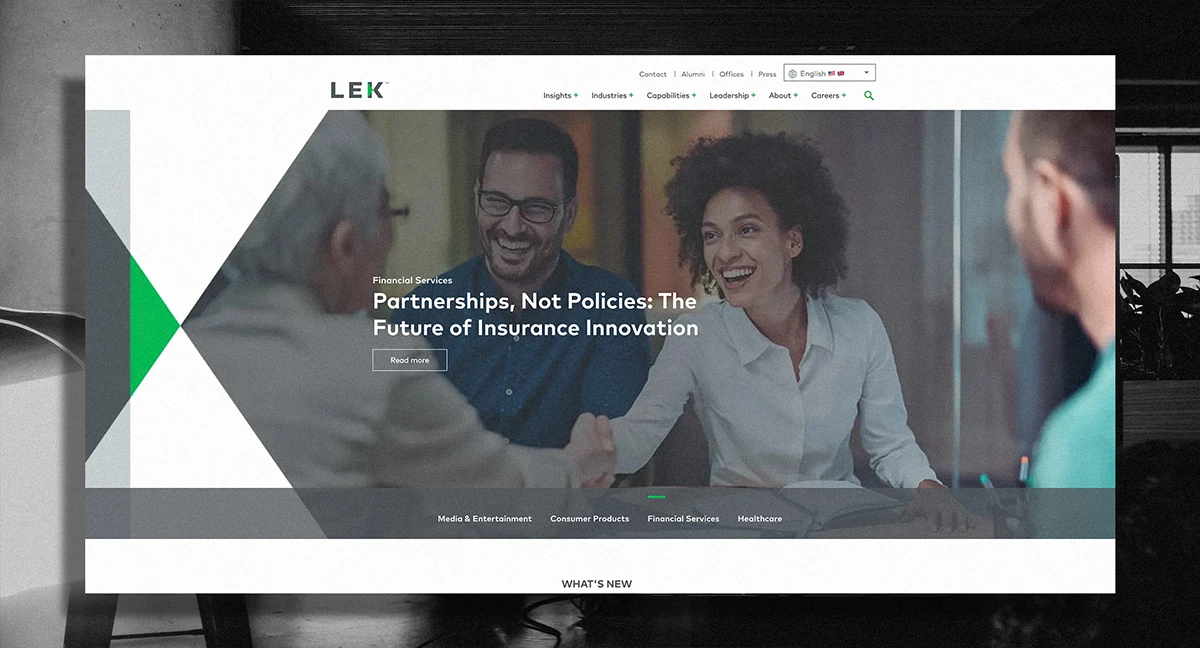
7. Milliman
Milliman is a trusted healthcare consulting firm and healthcare management consulting company, offering deep actuarial insight, health economics, and predictive modeling for providers, payers, and public health entities.
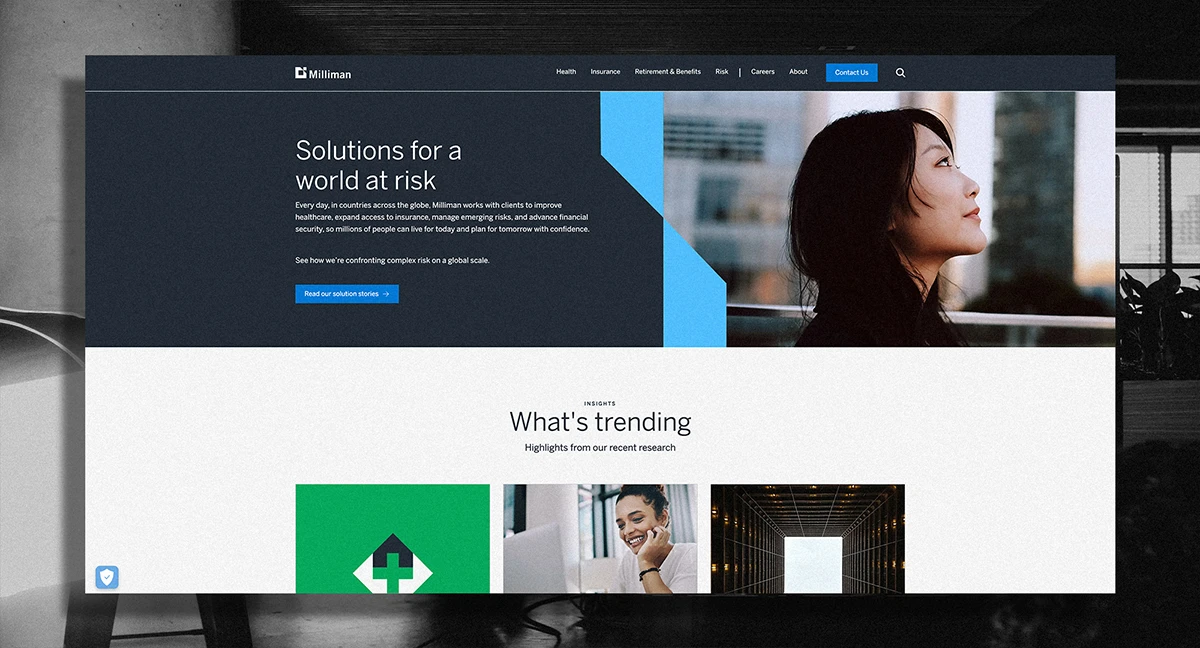
8. CitiusTech
CitiusTech is a technology-first healthcare consulting firm and healthcare strategy agency, supporting organizations with digital transformation, AI, data engineering, and clinical workflow optimization across the care continuum.
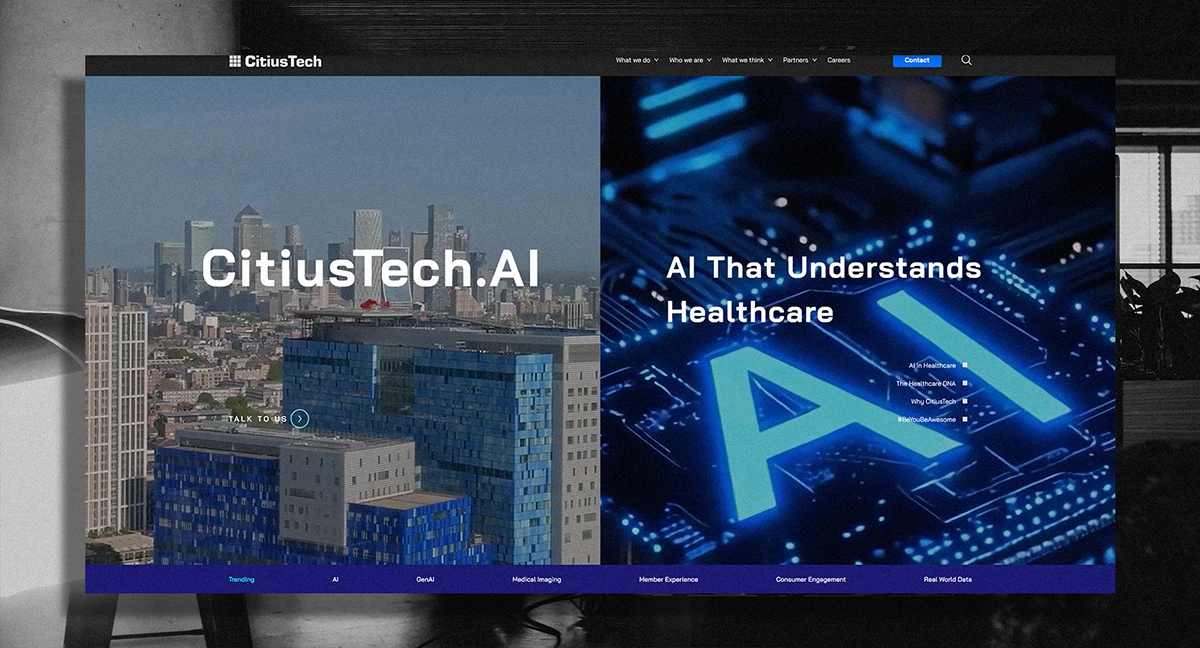
9. Huron Consulting Group
Huron is a specialized healthcare management consulting firm helping academic medical centers, health systems, and payers drive strategic alignment, financial improvement, and performance-based transformation.
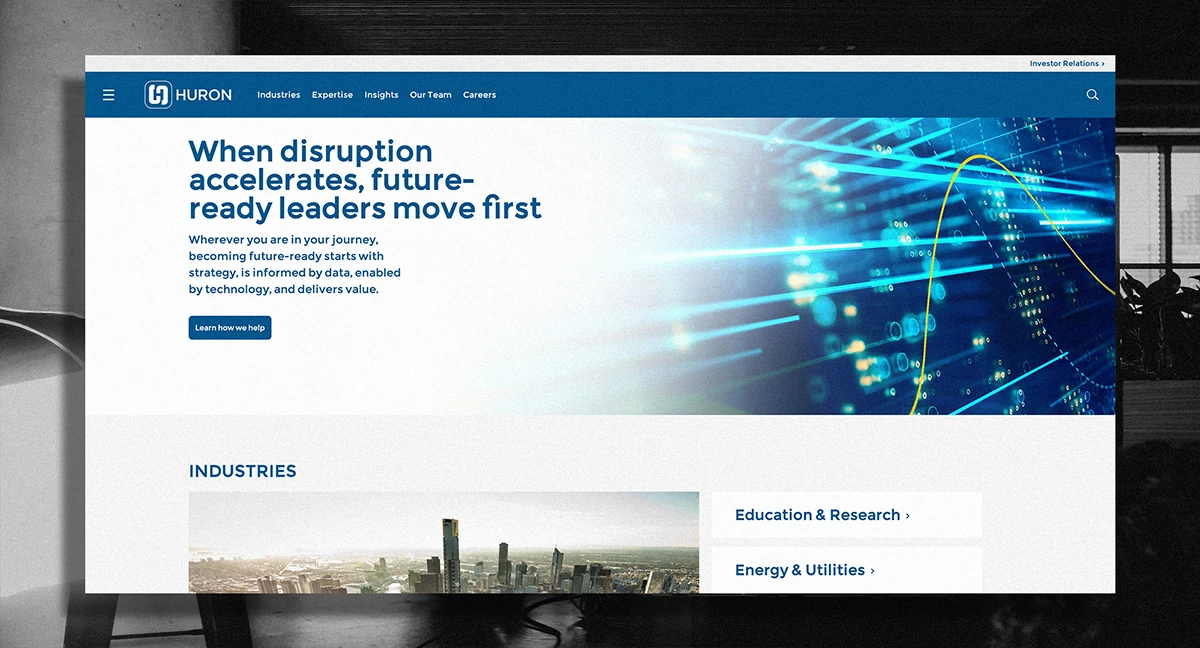
10. Optum Advisory
Optum Advisory is a robust healthcare management consulting company and healthcare consulting firm known for helping organizations transition to value-based care, integrate data insights, and improve system-wide health outcomes.
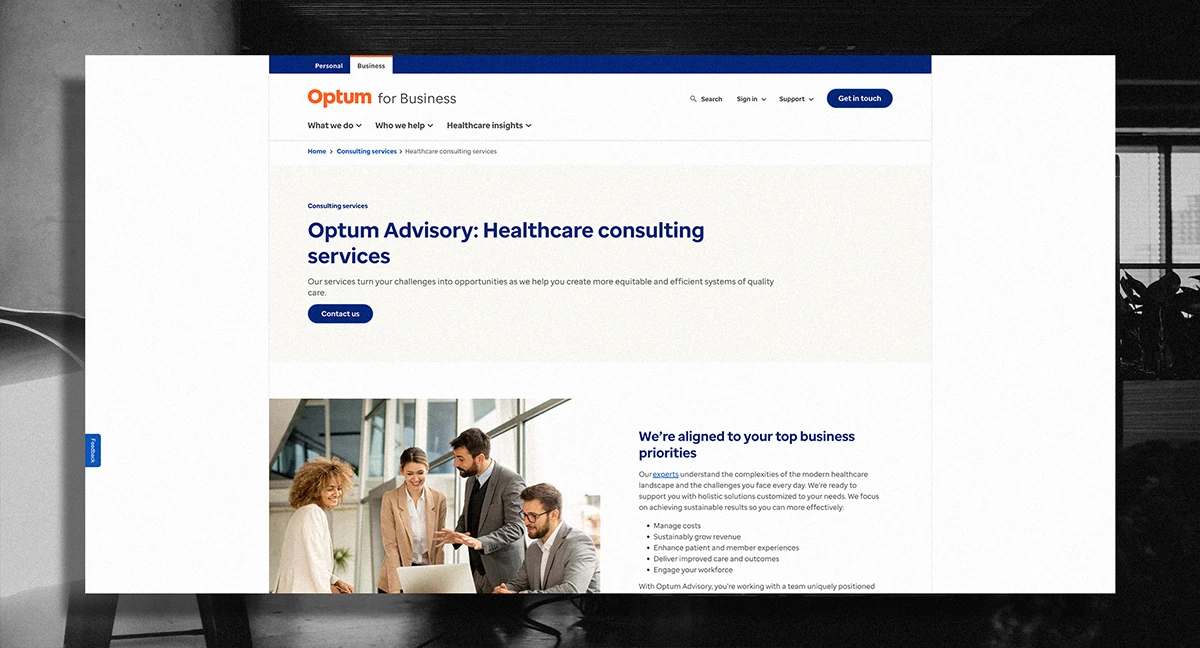
What Is Healthcare Strategy?
Healthcare strategy refers to the structured approach organizations use to define long-term goals, allocate resources, and make decisions that improve clinical outcomes, operational efficiency, financial performance, and patient satisfaction. It encompasses corporate strategy, care delivery models, market positioning, digital transformation, and value-based care alignment. A sound healthcare strategy considers macro trends—such as regulatory shifts, demographic changes, and evolving payer models—while aligning organizational capabilities with measurable impact areas. The goal is to establish a clear roadmap that supports sustainable growth, competitiveness, and system-wide resilience in a rapidly evolving healthcare landscape.
How Does Healthcare Strategy Work?
Healthcare strategy works by integrating data-driven insights, stakeholder input, and industry foresight to prioritize and execute initiatives that advance an organization’s mission and performance. It begins with rigorous environmental analysis, including market dynamics, regulatory risks, and competitive pressures, followed by internal assessments of clinical operations, patient journeys, and financial levers. Strategic priorities are then defined and operationalized through implementation roadmaps, cross-functional alignment, and key performance indicators (KPIs) that ensure accountability and measurable progress. The strategy is continuously refined through feedback loops, scenario planning, and change management to ensure adaptability and long-term relevance.
What Is a Healthcare Strategy Agency?
A healthcare strategy agency is a specialized consulting partner that helps healthcare organizations—such as providers, payers, and life sciences firms—design and execute strategic initiatives that address market disruption, growth, and transformation. These agencies combine industry expertise, analytical capabilities, and implementation experience to deliver guidance across areas including market entry, digital health, patient engagement, operational efficiency, and business model innovation. As external partners, they bring an unbiased perspective, benchmark performance against industry standards, and accelerate strategic execution by augmenting internal bandwidth and introducing proven frameworks tailored to healthcare-specific complexities.
A healthcare strategy agency brings a unique blend of industry knowledge, analytical rigor, and executional support to help healthcare organizations navigate complexity and achieve measurable outcomes. With deep experience across the provider, payer, and life sciences landscape, these agencies are equipped to address challenges ranging from market positioning and operational transformation to patient engagement and digital innovation. This section outlines the core capabilities of a healthcare strategy agency—highlighting how the right partner can guide critical decisions, streamline processes, and create long-term value in a rapidly evolving healthcare environment.
What Services Do Healthcare Strategy Agencies Provide?
Market and Competitive Intelligence
A healthcare strategy agency provides detailed market and competitive intelligence to help organizations understand their positioning, emerging threats, and growth opportunities. This includes analyzing regulatory trends, patient demographics, payer dynamics, and competitor benchmarks. Agencies use these insights to inform strategic planning, guide investment decisions, and identify whitespace in service lines, care models, or geographies.
Digital Transformation Strategy
Healthcare strategy agencies help clients define and implement digital transformation initiatives that improve efficiency, patient outcomes, and system-wide integration. This includes evaluating legacy systems, identifying scalable technologies, and developing digital roadmaps aligned with organizational goals. Agencies also support technology selection, vendor evaluation, and enterprise-level change management.
Operational Efficiency and Cost Optimization
By analyzing workflows, resource allocation, and performance data, healthcare strategy agencies identify inefficiencies and deliver recommendations for cost containment and operational improvements. This includes redesigning care delivery models, restructuring service lines, and enhancing workforce productivity. Agencies often use industry benchmarks and proprietary frameworks to accelerate results and ensure sustainable impact.
Value-Based Care and Payment Model Strategy
Healthcare strategy agencies support organizations in transitioning to value-based care by assessing readiness, modeling financial impacts, and developing performance frameworks. They advise on risk-sharing arrangements, bundled payments, and population health initiatives while aligning incentives across stakeholders. These services ensure that providers and payers can succeed under evolving reimbursement models.
Brand Positioning and Growth Strategy
A healthcare strategy agency defines and refines brand positioning strategies that align with market needs and organizational strengths. This includes assessing patient perception, analyzing competitive branding, and crafting clear value propositions. Agencies also help healthcare organizations identify expansion opportunities, develop service line strategies, and optimize go-to-market approaches.
Mergers, Acquisitions, and Integration Planning
In the context of M&A, healthcare strategy agencies provide support from due diligence through post-merger integration. Services include market assessments, synergy modeling, cultural alignment, and operating model design. Agencies ensure transactions generate long-term value by aligning strategic goals, mitigating risk, and enabling seamless transitions.
Patient Experience and Engagement Strategy
Agencies advise healthcare organizations on how to design and scale patient-centric models by analyzing patient journeys, satisfaction drivers, and digital touchpoints. Strategy partners help define experience benchmarks, prioritize engagement initiatives, and implement tools that support continuous improvement and personalized care.
Strategic Planning and Roadmapping
Healthcare strategy agencies work closely with leadership teams to define vision, priorities, and a multi-year roadmap grounded in organizational capabilities and market realities. These plans include specific goals, resource allocation, KPIs, and governance models that guide execution. Agencies also ensure alignment across departments and stakeholders to drive cohesive action.
Innovation and New Business Models
To stay ahead in a shifting healthcare landscape, organizations partner with healthcare strategy agencies to explore and implement new business models. These may include home-based care, digital health ventures, or B2B health platforms. Agencies support ideation, feasibility studies, prototyping, and market launch strategies that balance innovation with operational scalability.
Regulatory Strategy and Risk Management
Healthcare strategy agencies help clients navigate the complex and evolving regulatory environment by providing guidance on compliance, accreditation, policy trends, and risk mitigation. This includes supporting organizations in adapting to new CMS rules, HIPAA updates, and evolving data governance standards while ensuring strategic initiatives remain compliant.
Let’s kickstart the conversation and design stuff people will love.

How Long Does a Healthcare Strategy Engagement Take to Complete?

When working with a healthcare strategy agency, understanding the typical engagement timeline helps set clear expectations and ensures alignment between strategic goals and execution milestones. While timelines can vary based on project scope, complexity, and organizational readiness, most engagements follow a structured process that spans from discovery and analysis through strategic planning and implementation support. This section outlines the general timeframes healthcare strategy agencies follow—offering insight into how long it typically takes to deliver meaningful outcomes and build lasting impact across healthcare organizations.
Scope and Complexity of the Engagement
The overall scope and complexity of the engagement is one of the primary factors influencing timeline. A focused initiative—such as payer contracting strategy—may take a few weeks, while a multi-market transformation strategy or enterprise-wide roadmap can take several months. The breadth of departments involved, the number of stakeholders, and the depth of analysis required will extend the time needed for thorough research, collaboration, and delivery.
Size and Structure of the Healthcare Organization
Larger organizations or those with decentralized structures typically require more time for data gathering, stakeholder alignment, and decision-making. Strategy agencies working with academic medical centers, multi-state health systems, or national payers may need to navigate layered governance structures and varied business units, adding to engagement length. In contrast, smaller or more centralized organizations may allow for quicker turnaround and approvals.
Availability and Quality of Internal Data
The accessibility and integrity of internal data significantly affect project timelines. If clinical, financial, or operational data is incomplete, siloed, or poorly structured, agencies must allocate additional time for data validation and cleanup before conducting analysis. Conversely, clients with high-quality, centralized data systems allow for faster modeling, benchmarking, and insight generation.
Level of Stakeholder Engagement Required
The more departments, leaders, or frontline teams involved in the strategic initiative, the longer it may take to coordinate input and gain alignment. Strategy agencies often conduct interviews, facilitate workshops, and lead working sessions—activities that are essential for building buy-in but require careful scheduling and collaboration across roles and levels.
Decision-Making Speed and Governance Processes
Engagements move faster when leadership is aligned, decision-making is streamlined, and governance structures are clear. In organizations where approval cycles are lengthy or where there is misalignment at the executive level, timelines may expand to accommodate additional reviews, feedback loops, and revisions. Agencies help clients anticipate these cycles and structure the work accordingly.
Implementation Readiness and Support Needs
If a strategy engagement includes execution support—such as project management, pilot testing, or change enablement—the timeline extends beyond planning into implementation. Agencies may remain engaged for several additional months to guide rollout, monitor progress, and refine initiatives based on early results. Clients should account for these phases when assessing total project duration.
External Market or Regulatory Pressures
Urgency driven by market shifts or regulatory deadlines can accelerate or compress timelines. For example, a payer may need to respond quickly to policy changes in reimbursement, or a health system may face time-sensitive competition in a new market. Agencies adjust their approach accordingly, balancing speed with the depth and accuracy needed to ensure sound strategic outcomes.
How Healthcare Strategy Agencies Price Their Work
Engaging a healthcare strategy agency involves an important investment that reflects the complexity, expertise, and value delivered throughout the project. Pricing structures can vary based on factors such as the scope of work, project duration, and level of customization required. This section provides an overview of common pricing models and key considerations clients should keep in mind when budgeting for healthcare strategy services, helping ensure transparency and alignment from the outset.
Project Scope and Complexity
The scope and complexity of the engagement heavily influence pricing, as broader projects requiring in-depth analysis, multiple workstreams, and cross-functional collaboration demand more resources and expertise. Healthcare strategy agencies price larger, more complex initiatives higher due to the increased time commitment, specialized skills, and comprehensive deliverables involved.
Duration of Engagement
Longer engagements generally carry higher fees because they involve sustained support, ongoing research, and extended access to consultants. Agencies often offer pricing models that reflect the length of the project, with some providing discounts for longer-term partnerships or retainer agreements that cover continuous advisory services.
Level of Expertise Required
Pricing varies based on the seniority and specialization of the consultants involved. Projects requiring highly specialized healthcare strategy experts, such as former industry executives or data scientists, will typically command higher rates. Agencies tailor their teams to match client needs, balancing cost with the expertise necessary to achieve desired outcomes.
Customization and Deliverables
Highly customized solutions with tailored frameworks, proprietary tools, or extensive stakeholder engagement are priced differently than standardized assessments or benchmark reports. Clients can expect agencies to factor in the time and effort needed to develop bespoke deliverables that align closely with organizational goals and challenges.
Client Size and Market Position
Healthcare strategy agencies may adjust pricing based on the size and market influence of the client organization. Larger healthcare systems or national payers often require more complex coordination and may be charged accordingly, while smaller or regional clients might receive scaled pricing to match their scope and budget.
Additional Services and Implementation Support
Engagements that extend beyond strategy development into implementation, training, or change management involve additional costs. Agencies often structure pricing to include these phases separately or as add-ons, reflecting the extra time, resources, and ongoing partnership necessary to drive execution and measurable impact.
Geographic and Regulatory Considerations
Pricing can be influenced by the regulatory environment or geographic reach of the engagement. Projects spanning multiple states or countries may require additional legal, compliance, or logistical expertise, which agencies account for in their pricing models to ensure comprehensive coverage of client needs.
Why Hire a Healthcare Strategy Agency

Partnering with a healthcare strategy agency offers organizations access to specialized expertise, objective insights, and proven methodologies that internal teams may not possess. These agencies bring a holistic perspective that integrates market trends, regulatory knowledge, and operational best practices to drive sustainable growth and innovation. This section explores the key reasons why healthcare organizations benefit from working with a strategy agency—highlighting how the right partner can accelerate transformation, reduce risk, and unlock new opportunities in a complex and evolving industry.
Access to Specialized Expertise
Healthcare strategy agencies bring deep, specialized knowledge that spans clinical, operational, financial, and regulatory domains. Their experience across multiple organizations and markets enables them to provide insights and solutions that internal teams may lack, helping clients navigate complex challenges with confidence.
Objective and Unbiased Perspective
An external strategy agency offers an impartial viewpoint that can uncover blind spots and challenge entrenched assumptions. This objectivity supports more informed decision-making and encourages innovation by introducing fresh ideas grounded in industry best practices.
Scalability and Bandwidth Support
Healthcare organizations often face resource constraints or capacity limitations, especially during periods of growth or transformation. Strategy agencies provide scalable support by supplementing internal teams, accelerating project delivery without overburdening existing staff.
Accelerated Time to Value
Engaging a healthcare strategy agency helps organizations compress timelines by leveraging proven frameworks, analytics tools, and expert methodologies. This focused approach enables faster identification of opportunities, quicker implementation of solutions, and more timely achievement of strategic goals.
Risk Mitigation and Compliance Expertise
Navigating regulatory complexity and evolving market dynamics presents significant risk. Healthcare strategy agencies help clients anticipate, manage, and mitigate these risks through rigorous compliance strategies and forward-looking scenario planning.
Innovation and Competitive Advantage
By partnering with a healthcare strategy agency, organizations gain access to cutting-edge trends, technology insights, and emerging business models. This external expertise supports innovation efforts that differentiate clients in competitive healthcare markets.
Cross-Industry Benchmarking and Best Practices
Healthcare strategy agencies draw on a broad range of industry experiences, enabling clients to benchmark performance, identify gaps, and adopt best practices proven in other settings. This comparative insight drives continuous improvement and strategic refinement.
Change Management and Implementation Support
Beyond strategy development, many healthcare strategy agencies assist with execution, offering change management guidance and operational support. This end-to-end partnership increases the likelihood of successful transformation and lasting impact.
Cost Efficiency and ROI Focus
While engaging an external agency requires investment, the ability to optimize resource allocation, identify cost-saving opportunities, and enhance revenue streams often results in a strong return on investment. Agencies help clients align spending with strategic priorities to maximize financial outcomes.
How to Choose The Most Reliable Healthcare Strategy Agency
Choosing the right healthcare strategy agency is a critical decision that can significantly impact the success of an organization’s strategic initiatives. With numerous firms offering a range of services and expertise, it is essential to evaluate potential partners carefully to ensure alignment with specific goals, culture, and industry challenges. This section outlines key factors to consider when selecting a healthcare strategy agency, providing guidance to help organizations make an informed choice that drives meaningful and lasting results.
Relevant Industry Experience
When selecting a healthcare strategy agency, it is crucial to evaluate their experience within your specific sector—whether that be providers, payers, life sciences, or digital health. Agencies with relevant industry expertise understand the unique challenges, regulatory environments, and market dynamics, allowing them to deliver tailored, actionable strategies.
Proven Track Record and Client References
A strong history of successful engagements and satisfied clients is a key indicator of an agency’s capabilities. Prospective clients should seek case studies, performance metrics, and references that demonstrate the agency’s ability to drive measurable impact and navigate complex healthcare projects effectively.
Depth and Breadth of Services
Healthcare organizations benefit from agencies offering a comprehensive range of services, including market analysis, operational improvement, digital transformation, and implementation support. Choosing a partner with broad capabilities ensures strategic continuity and reduces the need to coordinate multiple vendors.
Customized Approach and Flexibility
Every healthcare organization has distinct goals and challenges, so the ideal agency must be willing and able to customize their methodology rather than offering one-size-fits-all solutions. Flexibility in approach enables the agency to adapt to evolving client needs and industry trends.
Cross-Functional Expertise and Team Composition
A healthcare strategy agency should bring together diverse expertise, including clinical, financial, operational, and technological skills. Evaluating the team’s composition ensures that all relevant perspectives are represented, enabling holistic and well-rounded strategies.
Collaborative Partnership Style
The best healthcare strategy agencies act as true partners rather than external consultants. Look for firms that prioritize collaboration, knowledge transfer, and stakeholder engagement to build internal capabilities and foster sustainable change.
Transparent Pricing and Value Alignment
Understanding pricing models and ensuring alignment between cost and expected value is essential. Agencies that provide clear, transparent pricing and demonstrate a focus on delivering tangible ROI help build trust and long-term relationships.
Innovation and Thought Leadership
Agencies that invest in research, technology, and emerging trends bring valuable forward-looking insights to the table. Selecting a partner known for thought leadership ensures access to cutting-edge strategies that keep organizations competitive in a rapidly changing healthcare landscape.
Strong Project Management and Delivery
Effective execution is as important as strategy formulation. A healthcare strategy agency with robust project management practices helps ensure timelines are met, deliverables are high quality, and stakeholder communication is seamless throughout the engagement.
15 Questions To Ask Healthcare Strategy Agencies Before You Hire One

Before engaging a healthcare strategy agency, decision-makers often have important questions to ensure the partnership will meet their organization’s unique needs and deliver meaningful results. Understanding what to ask helps clarify expectations, evaluate expertise, and assess fit—ultimately supporting a confident hiring decision. This section presents common questions prospective clients should consider when evaluating healthcare strategy agencies, guiding them toward a thorough and informed selection process.
- What specific experience do you have in our segment of the healthcare industry?
- Can you provide examples of similar projects you’ve successfully completed?
- How do you customize your approach to fit different healthcare organizations?
- What is your process for understanding and aligning with our strategic goals?
- How do you handle data privacy and compliance in your engagements?
- What types of deliverables and reports can we expect throughout the project?
- How do you ensure stakeholder engagement and buy-in during the strategy development process?
- What is your typical project timeline for engagements similar to ours?
- How do you measure the success and impact of your strategies?
- What level of involvement will your senior leadership have in our project?
- How do you manage changes in scope or unforeseen challenges during the engagement?
- Can you support us beyond strategy development with implementation or change management?
- What are your pricing models and payment terms?
- How do you differentiate your agency from other healthcare strategy firms?
- Can you provide references or testimonials from past healthcare clients?
What Specific Experience Do You Have in Our Segment of the Healthcare Industry?
Understanding an agency’s experience in your particular segment—whether providers, payers, life sciences, or digital health—is essential because healthcare is a highly specialized industry with unique challenges and regulatory environments. Agencies with relevant sector expertise will be better equipped to address your specific market dynamics, clinical workflows, and compliance issues. This ensures they can provide practical, informed recommendations that resonate with your organization’s realities.
Can You Provide Examples of Similar Projects You’ve Successfully Completed?
Requesting concrete examples of past projects helps verify the agency’s claims and assess their track record. It also offers insight into their problem-solving capabilities, methodology, and ability to deliver measurable results. Seeing how they approached challenges similar to yours—and the outcomes they achieved—builds confidence that they can navigate your organization’s specific needs effectively.
How Do You Customize Your Approach to Fit Different Healthcare Organizations?
Healthcare organizations vary widely in size, culture, and strategic priorities. Asking about customization reveals whether the agency takes a one-size-fits-all approach or tailors their methodology to each client. Customized strategies are more likely to succeed because they consider the unique internal and external factors affecting your organization, ensuring relevance and feasibility of recommendations.
What Is Your Process for Understanding and Aligning With Our Strategic Goals?
Alignment with your organization’s strategic goals is critical for producing actionable and impactful recommendations. This question helps determine how the agency engages with your leadership, conducts stakeholder interviews, and integrates your vision and priorities into their work. A structured alignment process minimizes the risk of misdirected efforts and fosters shared ownership of the strategy.
How Do You Handle Data Privacy and Compliance in Your Engagements?
Healthcare data is highly sensitive and regulated by laws such as HIPAA. Understanding the agency’s approach to data privacy and compliance protects your organization from legal and reputational risks. This question clarifies their protocols for managing confidential information, data security measures, and adherence to relevant regulations throughout the project.
What Types of Deliverables and Reports Can We Expect Throughout the Project?
Clear expectations about deliverables—such as strategic plans, dashboards, market analyses, or implementation roadmaps—help you understand how progress will be communicated. Frequent and well-structured reporting fosters transparency, allows for course correction, and ensures that the strategy development remains on track and aligned with your needs.
How Do You Ensure Stakeholder Engagement and Buy-In During the Strategy Development Process?
Successful healthcare strategies require support from diverse stakeholders, including clinical leaders, executives, and operational teams. This question addresses the agency’s methods for engaging these groups, facilitating workshops, and managing communication. High stakeholder buy-in increases the likelihood of smooth implementation and sustained organizational commitment.
What Is Your Typical Project Timeline for Engagements Similar to Ours?
Knowing typical timelines helps you plan internal resources, set realistic expectations, and align the project with other organizational initiatives. Timelines also reflect the agency’s capacity and approach—whether they prioritize thorough analysis or rapid delivery—and enable you to assess whether their pace fits your strategic urgency.
How Do You Measure the Success and Impact of Your Strategies?
An agency’s ability to define and track key performance indicators (KPIs) is vital for demonstrating return on investment and guiding ongoing improvements. This question explores how the agency sets measurable goals, collects data, and evaluates outcomes to ensure that strategies lead to tangible benefits, such as improved patient outcomes, cost savings, or revenue growth.
What Level of Involvement Will Your Senior Leadership Have in Our Project?
Senior leadership involvement often correlates with the quality and strategic insight of an engagement. Understanding which partners or senior experts will be directly involved helps you assess the depth of expertise applied to your project and ensures access to high-level decision-makers who can provide strategic guidance and troubleshoot complex issues.
How Do You Manage Changes in Scope or Unforeseen Challenges During the Engagement?
Healthcare projects can encounter unexpected shifts due to evolving regulations, organizational changes, or new data findings. This question clarifies the agency’s flexibility and change management processes, including how they communicate adjustments, renegotiate scope, and mitigate risks to keep the project on track without compromising quality.
Can You Support Us Beyond Strategy Development With Implementation or Change Management?
Strategy is only as effective as its execution. Agencies that offer implementation support, including project management and change management, help bridge the gap between planning and action. This question reveals whether the agency can provide ongoing guidance, troubleshoot barriers, and embed new practices for lasting impact.
What Are Your Pricing Models and Payment Terms?
Understanding pricing models—whether fixed fee, hourly, retainer, or performance-based—and payment terms helps you budget appropriately and avoid surprises. Transparent discussions about costs and value alignment also build trust and clarify expectations regarding scope, deliverables, and financial commitments.
How Do You Differentiate Your Agency From Other Healthcare Strategy Firms?
Every agency claims expertise, but differentiation lies in unique methodologies, proprietary tools, industry relationships, or specialized knowledge. This question invites agencies to articulate their distinct value proposition and competitive advantages, helping you evaluate whether their strengths align with your priorities and culture.
Can You Provide References or Testimonials From Past Healthcare Clients?
References and testimonials offer third-party validation of the agency’s effectiveness, professionalism, and client service. Speaking with previous clients provides practical insights into the working relationship, responsiveness, and outcomes, helping you make a more informed and confident hiring decision.
Searching for the right Healthcare Strategy Agency?
Hiring a healthcare strategy agency offers organizations access to specialized expertise, objective insights, and tailored solutions that internal teams may not be equipped to deliver alone. These agencies bring proven frameworks, deep industry knowledge, and data-driven approaches that accelerate decision-making, reduce risk, and drive sustainable growth. By partnering with a healthcare strategy agency, organizations can navigate the complexities of regulatory change, digital transformation, and market competition more effectively—ultimately achieving better outcomes for patients, providers, and stakeholders alike.
G & Co. stands out as a trusted healthcare strategy agency with a track record of partnering with leading healthcare organizations to develop actionable strategies that align with their unique challenges and goals. Combining deep sector expertise with an agile, collaborative approach, G & Co. delivers customized solutions that integrate market insights, operational excellence, and innovation. Their commitment to measurable results and client partnership ensures that every engagement drives meaningful impact—making G & Co. a premier choice for organizations seeking a strategic advantage in today’s complex healthcare environment.
Submit an inquiry to G & Co. on our contact page or click on the blue "Click to Contact Us" button on the bottom right corner of your screen for your convenience. We look forward to hearing from you.






%20(1).png)




